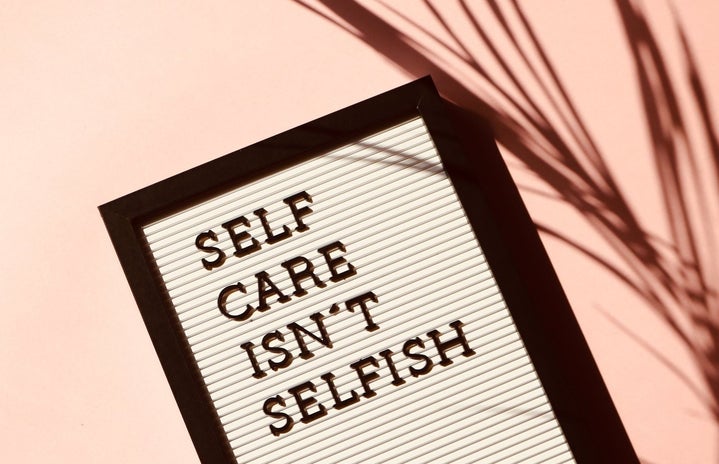Picture this: you find yourself in yet another situation where your people-pleasing has gotten you stuck between a rock and a hard place, and you now have to choose between letting someone in your life down or severely inconveniencing yourself. We’ve all been there, and this cycle is tough to beat. Recently, I’ve realized just how important it is to set boundaries for myself in order to find the balance between being generous and getting taken advantage of.
It can be scary to set boundaries, especially if you are uncomfortable with confrontation, but it doesn’t need to be this way. You can say ‘no’ to people in your life without coming across as selfish or brash, and lucky for you, I’ve compiled a list of steps to get you started. Whether it’s your best friend, significant other, parent, or boss, you are capable of standing up for yourself and saying goodbye to the doormat mentality.
- Practice Telling Them ‘No’
It might seem silly at first, but rehearsing these conversations aloud or in your head can ease anxiety and leave you less likely to freeze up when it comes time for the confrontation. A practice conversation is helpful to think about ahead of time if you know a situation that you have trouble voicing your true emotions is likely to arise. No matter how minuscule it may seem to someone else, these conversations can be immensely anxiety-inducing for a people pleaser.
Even if you don’t anticipate this situation to pop up soon, start thinking of ways to tell someone how you feel politely. For example, it might be helpful to have a few responses in your back pocket for when your boss asks you to work late or your mom scolds you for not calling her every night. It’s possible some people won’t respond well at first, but once you begin showing them that you can’t be pushed around or feel comfortable enough to tell them how you feel, healthier relationships will begin to arise.
- Remind Yourself That You Deserve to Be Comfortable
People-pleasing can be so difficult to stop because we don’t want anyone else to be let down. Sometimes we forget, however, that it’s okay to make decisions in order to keep yourself comfortable. There’s a difference between being generous or making sacrifices when you feel comfortable doing so and inconveniencing yourself too much. Don’t allow the fear of confrontation to stop you from saying something!
If your roommate likes keeping a light on at night, but it makes it difficult for you to sleep, having a conversation about it doesn’t mean you’re being selfish or inconveniencing them. You can likely come to an agreement where you both feel your preferences are met, and you don’t have to push the boundaries to appease them.
- Explain Why You’re Setting Boundaries
One of the best ways I got over the awkwardness I anticipated from these conversations was by simply explaining what I was doing and why. If you fear coming across as rude or confusing people in your life by abruptly changing your attitude, tell them that you’ve decided to begin setting boundaries for yourself and would like to have a conversation about it. I’ve found that being upfront and telling them this made them more likely to respect these boundaries and maybe even realize how important they could be in their own lives.
It can be helpful to explain that this is not an issue in terms of your relationship with that person, but rather your own wellness journey in which you are creating boundaries with everyone in your life. It’s not personal and has more to do with your relationship with yourself than with the people in your life.
- Be Confident
There is absolutely nothing to be ashamed of when expressing your feelings or needs, so go into these conversations with confidence and grit! You need not compromise your happiness for someone else’s, and odds are, they will not respond as negatively as you may expect. Being polite yet assertive about your boundaries will manifest a more positive response and allow the other person to see that your mind is made up about the subject.
- Remember that Healthy Boundaries Yield Healthy Relationships
At the end of the day, you can only improve positive relationships in your life by setting boundaries. People who respect you will respect your boundaries, and if you find that certain people are not doing this, it may be time to reevaluate your relationship with them. Healthy, mature influences in your life are the only ones genuinely worth keeping, and those are the ones who will listen to you and work with your boundaries.
Don’t give in just because your basic requests make other people unhappy; if they truly do not respond well after you’ve completed steps 1-4 (maybe even multiple times), then a more serious conversation may need to occur. Your healthy relationships will become even healthier, and you will quickly realize who does and does not deserve to be in your life.

Takeaway
If you’re a people pleaser, it’s time to begin learning that your needs should come first. Once you feel confident and comfortable setting boundaries, you’ll realize that you do not have to accept being a doormat. Even if you’re not a people pleaser, you can still benefit from creating small boundaries in your life and improving your relationships.
Your time and energy are valuable, and you should exert them in ways that you choose. That doesn’t mean you shouldn’t be kind, compassionate, and generous, but it should be done on your own terms when you feel comfortable. Wellness and self-love begin with listening to yourself; don’t be afraid to love yourself a little extra and be firm with your needs.



